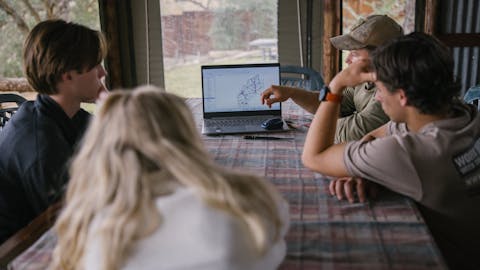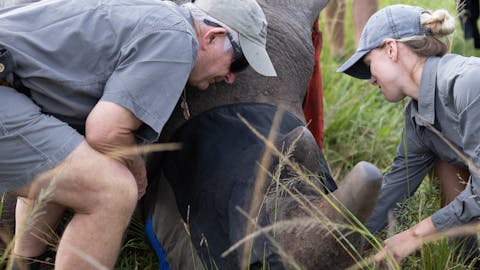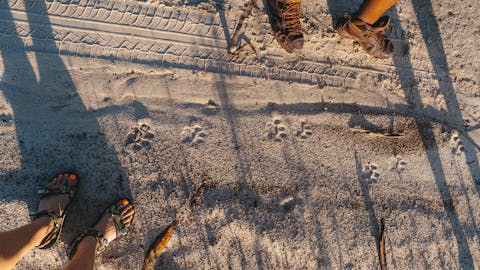Make it yours
Every experience is customised to be just right for you.
WILDLIFE VOLUNTEERING: THE RED FLAGS MOST PEOPLE MISS
Learn more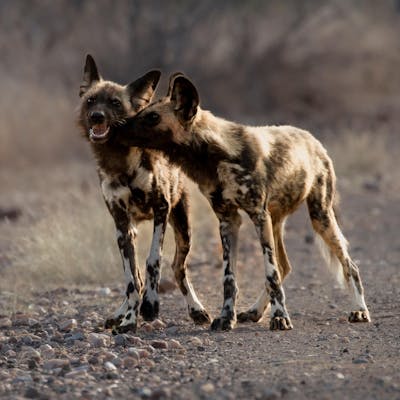
Step into the field. Join the frontline of wildlife conservation.
Walk in the footprints of elephants, assist with rhino relocations, and learn to operate infrared camera traps.
Volunteering with African Conservation Experience as a wildlife research volunteer in Africa means discovering the real impact of on-the-ground conservation work while contributing valuable data in the field. You’ll work alongside experienced conservationists, gaining first-hand insight into how ecosystems are monitored and protected in southern Africa.
These wildlife research and management experiences will challenge and inspire you, giving you the chance to learn from experts and contribute to real conservation research, whatever your background or experience level.
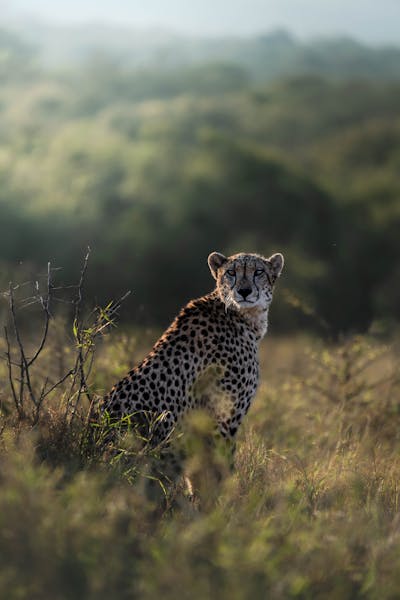

Explore our wildlife research volunteer programs in Africa.
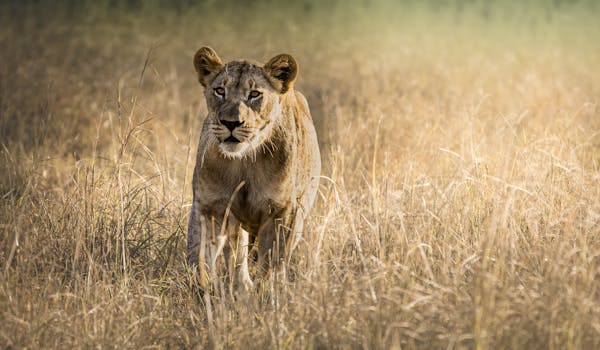
Go behind the scenes on a Big 5 reserve and join one of the biggest conservation success stories
View details for Phinda Wildlife Research Project
Go off the beaten track in a remote bush camp, and monitor lions, elephants and raptors
View details for Umsele Field Conservation Project - In Partnership With Balule & EWT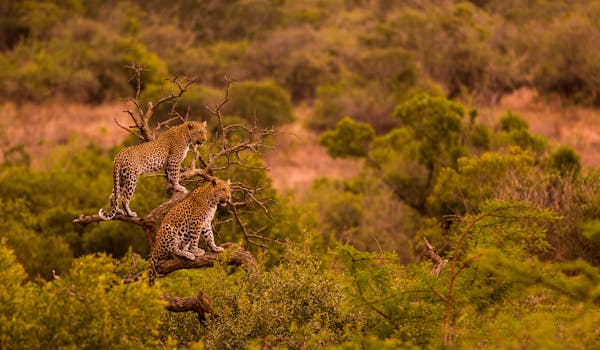
Explore a variety of animals in the Okavango Delta, home to the largest elephant population on Earth
View details for Okavango Wilderness Project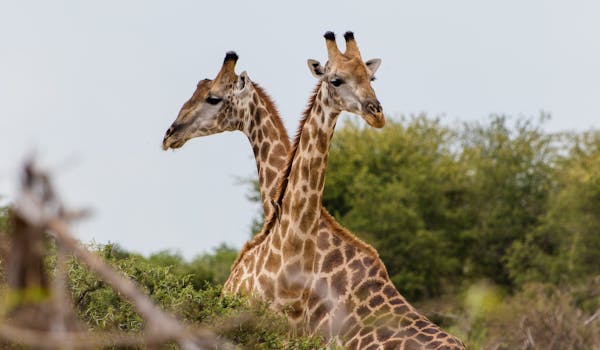
Visit three different projects in two countries to truly understand wildlife conservation in Africa
View details for From Famous Kruger To Remote Okavango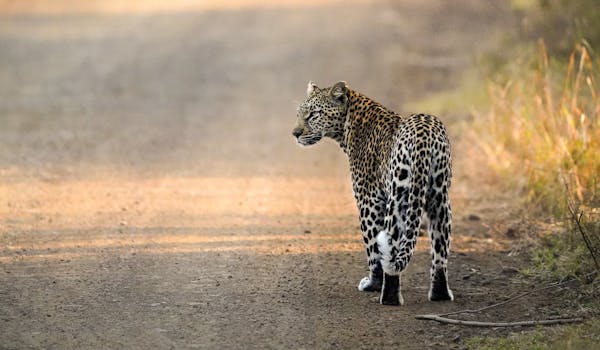
Get a unique behind the scenes experience in one of the largest and most important conservation areas in Africa
View details for The Vikela Kruger Conservation ExperienceClick the button to access your free guide. We've also sent it to your email.
Inside: the 8 red flags that reveal exploitation, the 10 green flags that prove genuine conservation, and the questions to ask before you book.
Download now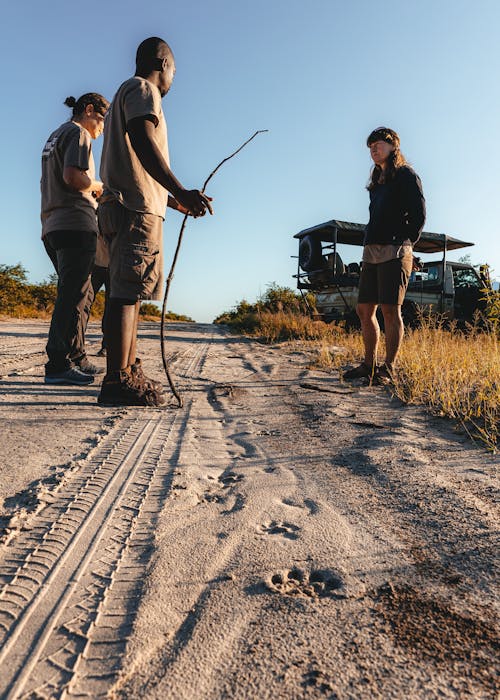
Volunteers studying tracks at the Okavango Wilderness Project
Southern Africa’s wildlife populations are currently under threat from all sides. The region’s growing human population is placing ever more pressure on limited resources such as water and habitat, forcing wildlife to live on ever-shrinking 'islands' of land. Meanwhile, climate change is exacerbating the situation. Summers are getting hotter and lasting longer, affecting the flow of rivers that provide a vital supply of water for wildlife.
All of this is happening against a backdrop of poaching, including poaching species such as rhinos for their horns, pangolins and vultures for use in traditional medicines, and antelopes as bush meat.
Wildlife research and management underpin the region’s whole conservation movement. Every ecosystem is a delicate balance of species that hunt one another and consume natural resources such as vegetation and water. So to create a near self-sustaining balance of species, conservationists need to constantly monitor the population dynamics of each animal, including ratios of male to female and age categorisations, how predator and prey species interact with each other and the available natural resources.
Carefully managed breeding programs and the game-capture industry can help to re-establish lost wildlife populations. Volunteer wildlife research also plays an increasingly important role in these efforts.
At African Conservation Experience, we believe conservation travel provides a viable financial model to replace trophy hunting.
While trophy hunting is still legally practised, we think the conservation community needs to continue its work identifying sustainable quotas for hunting. This is a vital task as trophy hunters predominantly focus on adult males, which raises serious questions about the impact on populations that are regularly exposed to hunting.
During your time in Africa, chances are you will meet people who strongly support or oppose hunting. From an outsider’s perspective, it is difficult to understand how anybody could defend a pastime which legitimises the killing of animals such as lions, elephants and giraffes. But this is a highly complex and controversial subject, and the jury is still out on how best to manage trophy hunting in Africa.
As animal lovers and conservationists, it is important that we do not let our moral objections to trophy hunting cloud our scientific judgment. However, looking at all the facts, we believe that conservation travel represents a genuinely viable alternative to hunting - replacing the money provided by hunting licences with financial support from travellers who would rather help animals than hunt them.
When you arrive in Africa, you’ll quickly discover one of the key issues affecting wildlife conservation is the expanding human population. This is resulting in more human-wildlife conflicts, leading to injuries and deaths on both sides.
The most common causes of human-wildlife conflict are animals damaging crops and livestock. When you consider that a fully grown elephant can eat up to 300kg of food a day, it’s easy to understand the farmer’s point of view. Similarly, if a pride of wild lions killed the herd of cattle you relied on for your livelihood, you might be tempted to use some pretty extreme methods to prevent a similar incident from happening again in future.
But there are ways to solve these issues that do not involve illegally and unnecessarily killing animals. Wildlife conservationists in Africa employ many different strategies to avoid human-animal conflict – and even find ways that people and wildlife can benefit each other. These include working with local communities to create physical barriers and deterrents, as well as identifying higher-risk areas that could draw animals into conflict with a community or local farmer, for example, unprotected crop fields.
As a wildlife research and management volunteer, you won’t just observe conservation - you’ll live it. Every day, you’ll be part of real conservation work on the frontline, supporting initiatives that directly contribute to the protection of vulnerable species and habitats and are aligned with the UN Sustainable Development Goals. We are also proud to be affiliated with leading global organisations like WWF and the Endangered Wildlife Trust (EWT).
Expect your days to start early, perhaps with a game drive or checking camera traps for signs of elusive species. You’ll learn practical fieldwork skills, from animal identification and tracking to behavioural observations. Guided by experienced conservationists, you’ll gain specialist knowledge in everything from population monitoring to reducing human-wildlife conflict, and directly support them in their efforts.
And it’s not just the wildlife that leaves a mark. Around the campfire, you’ll meet like-minded conservation volunteers from around the world - people who, like you, are passionate about making a genuine impact.
Unfortunately, governments in many developing economies simply don’t have the resources to invest in conservation. Even where governments have the desire to help, diverting funds away from policies that target human issues isn’t a politically viable option.
Conservation work in the region is therefore reliant on external private funding, such as from tourism and paid volunteering experiences. The conservation projects we support are vital to preserving Africa’s wildlife and ecosystems. They bring targeted financial support to the conservation community and place a highly motivated workforce on the ground. Namely, you.
We only partner with wildlife research projects where animal populations are either near self-sustaining or largely sustainable with minimal human support - a model we refer to as "stewarded". This approach allows animals to live as naturally as possible, which is vital for ensuring high standards of animal welfare and enabling genuine conservation efforts.
For more information on the topic of supporting sustainable wildlife management, please refer to our Wildlife Populations guide.
We specialise in volunteer wildlife research in southern Africa. We have several wildlife research and management projects in South Africa, as well as Botswana. On all of our experiences, you will learn about habitat improvement, tracking animal movement, poaching prevention and more.
There are three standout research programs! The Phinda reserve in South Africa has succeeded not just in reducing conflict but in creating a positive working relationship between wildlife and local communities. The Vikela Kruger Conservation Experience is situated within the Great Limpopo Transfrontier Conservation Area (GLTCA), overseen by the international Peace Parks Foundation. And the Okavango Wilderness Project is led by a leading lion ecologist and PhD Wildlife Management Researcher, Dr Christiaan Winterbach. You can support all of these programs by volunteering with us.
Take the first step on your adventure by simply submitting an enquiry form. We have opportunities suitable for all experiences and interests! You could volunteer at a wildlife reserve in South Africa, or combine multiple conservation projects to create an exciting Combined experience. You can find out more about how we take time to create a customised African Conservation Experience that’s just right for you here.
We can't wait to speak to you about the opportunities to become a wildlife conservation volunteer in Africa!
